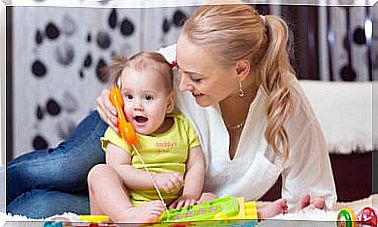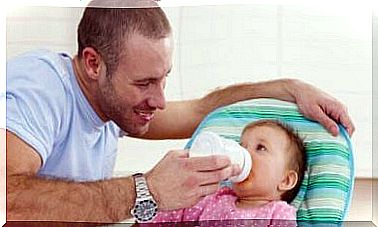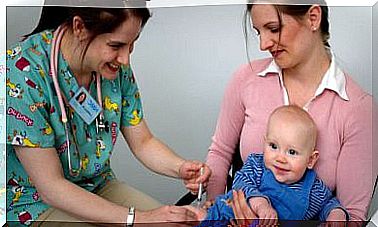Overvaluing Children Can Turn Them Into Narcissists
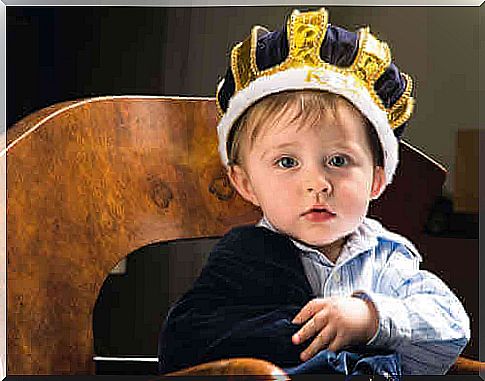
There are important differences between raising narcissistic children and raising children with high self-esteem. There is research that assures that the onset of narcissism is social and that it is due, above all, to parental overvaluation and not to lack of affection, while self-esteem is defined by affection and not because parents tend to overvalue them.
A recent study, published in the Proceedings of the National Academy of Sciences of the United States of America, explains that narcissistic behaviors are more frequent in children who internalize the inflated assessment of them; which have been built thanks to the fact that their parents tend to overvalue them. A child or a narcissistic person refers to the excessive and exaggerated admiration that a person feels for himself, for his physical appearance or for his gifts or qualities.
Knowing this information, parents often wonder how to praise their children without running the risk of overvaluing their children and eventually becoming narcissistic, a behavior that is increasingly common in the Western world and that can lead to violent behavior. and aggressive.
Express your affection without overvaluing
Ideally, as parents, you should express affection and appreciation to your children, however, doing so does not imply telling them that they are superior to others or that they have certain privileges over others because they are smarter or more beautiful. Although all parents in the world think that their children are special and in fact they are, you have to make them know their qualities in a balanced way in order to help them build healthy personalities.
When you overvalue your children, psychology experts say, you are doing them a very disservice, because doing so generates a false image of themselves, which depends on external recognition. In addition, when you make certain types of comments, in a subtle way and without bad intentions, you are suggesting that they must fit with a certain image, the one that they have internalized that you have of them.
And according to Olga Carmona, an expert in Brief Psychotherapy and in Childhood and Adolescent Psychopathology in an article in the newspaper El País de España, if the parents of a child constantly celebrate how intelligent they are, what the child internalizes is that for their attachment and reference figures, intelligence is a great value and that their affection for him will depend on my being that which is so important to them.
Therefore, what most parents should avoid is the overvaluation of their child since when they do so they contribute to forming a fragile self-esteem, whose base is based on the opinions that other people have about it and not on the recognition that the child has. child has about his true capabilities. When this happens, the child will become an adult who will depend – perhaps throughout his life – on external recognition to feel good about himself.
Avoid turning your children into narcissists
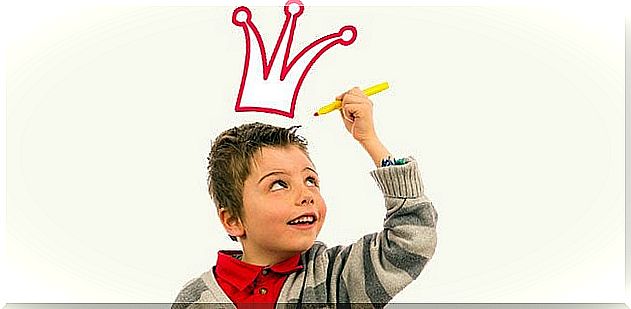
Someone narcissistic is someone deeply insecure. This person makes a flag of his supposed self-esteem, however, he feels obliged to show his flag everywhere to compensate for his internal insecurity. These types of behaviors or personalities can be avoided if you change the way you praise your children.
In fact, the authors of the study on narcissistic children offer a series of tips for parents, which are aimed at preventing them from promoting the construction of this type of personality, which is so harmful for individuals and for society in general.
- Avoid telling your child that they are more special than others. Remember that children always believe what their parents tell them
- Express affection to your children in all the ways you can, that is always positive and reinforces their self-esteem. However, beware of falling into comparisons or overvaluations
Experts also explain that the overvaluation of children is not the only cause of narcissism, there are also genetic factors and other environmental factors. They clarify that some children may be more likely than others to be narcissistic when their parents overvalue them.
They also place special emphasis on the differences of thoughts between children with high self-esteem and narcissists, since the former think that they are as good as others, while narcissists think that they are better than other people, and this often happens because his parents make him believe it.


